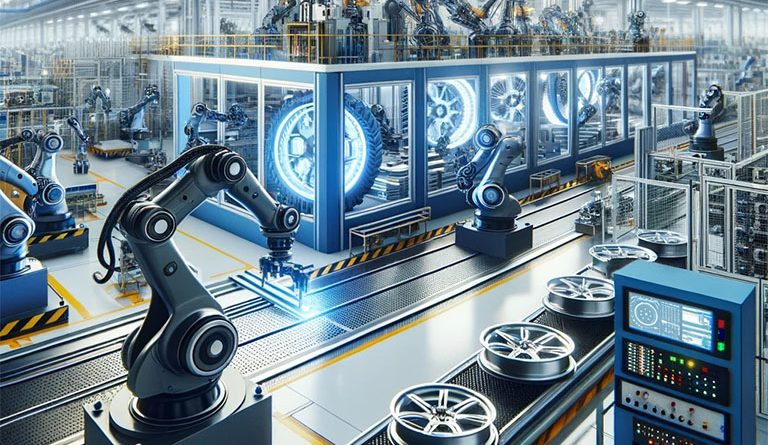Kenda breaks ground on new Martin Wheel manufacturing plant in Ohio
In the ever-evolving landscape of manufacturing, the wheel industry stands out as a beacon of continuous innovation and growth. At the heart of this progress is the recent groundbreaking of Kenda’s new Martin Wheel manufacturing facility in Ohio, USA. This development is not just a testament to Kenda’s commitment to expanding its footprint but also reflects the broader trends and advancements sweeping through the wheel manufacturing sector.
As we delve deeper into this field, it becomes apparent that the industry is at a pivotal juncture. Technological advancements are reshaping manufacturing processes, while consumer demands and global market dynamics are driving companies to redefine efficiency and sustainability. Kenda’s latest venture in Ohio is a microcosm of these industry-wide shifts, symbolizing the fusion of tradition with cutting-edge technology in wheel manufacturing.
Innovations in Wheel Manufacturing Technology
The forefront of innovation in wheel manufacturing is marked by groundbreaking technological advancements. A prime example is the development of the Leifeld WSC Flex by Leifeld Metal Spinning GmbH. This machine revolutionizes the manufacturing of rims through a flow-forming process, utilizing internal rollers to shape the rim’s surfaces, replacing the need for manual intervention. This tool-less process offers unprecedented flexibility, allowing for economical production even in small lot sizes.
This technological leap is particularly crucial in addressing growing design complexities and increasing wheel sizes, prevalent in the automotive industry. The flow-forming technique enhances the material’s grain structure, resulting in rims that are significantly lighter yet stronger than traditional wheels. The process enables the reduction of material cross-section at strategic points, optimizing it for the specific load requirements of the wheels. This advancement not only enhances strength but also allows for flexible wheel design and maximum weight reduction, a critical factor in modern vehicle manufacturing.
Emerging Technologies Shaping Manufacturing
The broader manufacturing sector is witnessing a surge in the adoption of advanced and emerging technologies. Artificial intelligence, virtual reality, machine learning, automation, and robotics are no longer futuristic concepts but integral components of modern manufacturing setups. These technologies are not just augmenting the capabilities of workers but also necessitating the presence of more high-skilled employees.
Digital technologies are becoming essential in making manufacturers more resilient, efficient, and profitable. They play a crucial role in overcoming the challenges posed by the current workforce shortage, positioning manufacturers to better adapt to changing market demands and operational challenges. The integration of these sophisticated technologies is redefining what’s possible in manufacturing, pushing the boundaries of efficiency and innovation.
Addressing Challenges in the Manufacturing Sector
Despite the technological leaps, the manufacturing sector faces significant challenges, particularly in supply chain management and workforce dynamics. Manufacturers are grappling with long lead times, increased costs, and a scarcity of raw materials. In response, strategies like reshoring, diversifying supplier pools, and enhancing cybersecurity are being employed to boost supply chain resilience.
The workforce landscape is also evolving. Manufacturers are confronting labor shortages and skills gaps, while exploring ways to tap into previously underutilized talent pools. These challenges are not just obstacles but opportunities for the sector to evolve and adapt, fostering a more skilled and diverse workforce capable of driving the industry forward.
Sustainability and Cybersecurity in Modern Manufacturing
Two critical aspects shaping the future of manufacturing are sustainability and cybersecurity. With a growing emphasis on environmental responsibility, manufacturers are increasingly committed to operations that contribute to a healthier planet. Efforts to reduce carbon emissions are becoming a standard part of manufacturing processes, reflecting a global shift towards more sustainable practices.
Cybersecurity, on the other hand, has emerged as a non-negotiable facet of modern manufacturing. The threat posed by cyber-attacks is real and pervasive, making robust cybersecurity measures essential across the manufacturing supply chain. Manufacturers must stay vigilant and adapt to new cybersecurity requirements to safeguard their operations and maintain the integrity of their supply chains.
